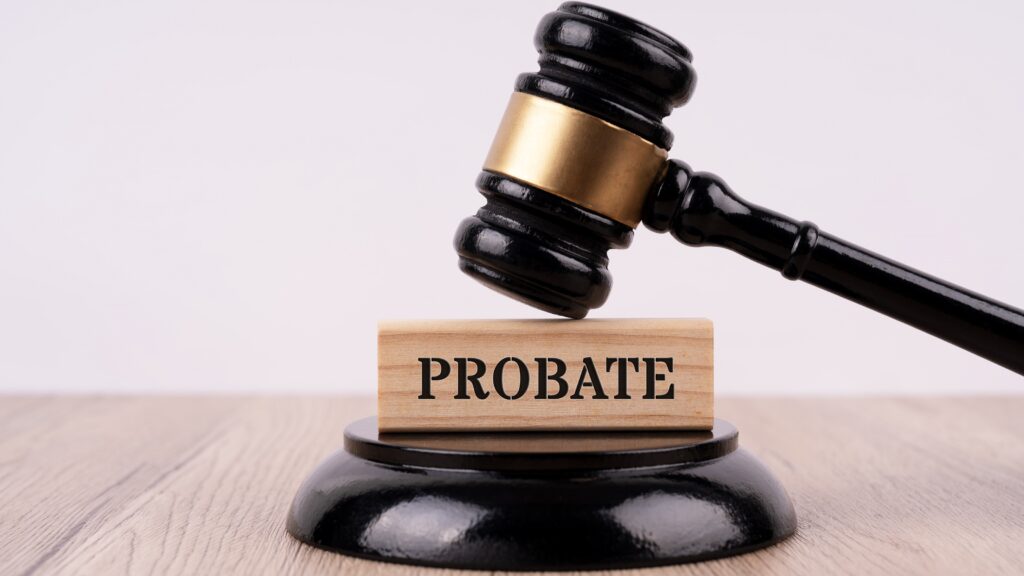If you’re asking, “Do joint bank accounts need probate in Texas?”, you’re not alone. It’s a question that pops up during one of the most emotional and confusing times in life—after someone passes away. The answer, while seemingly straightforward, depends on the details. And in Texas, the fine print matters.
This guide isn’t just about statutes and legal terms—it’s about giving you a clear path forward. Whether you’re the surviving co-owner of a joint account or you’re helping a loved one’s estate get sorted, understanding Texas probate law could save you a lot of time, money, and heartache. We’ll break it all down, using real-life examples and expert analysis to help you protect your rights and assets.

The Big Question: Do Joint Bank Accounts Need Probate in Texas?
So let’s dive straight in—do joint bank accounts need probate in Texas? The answer is: it depends on how the account was set up. While it might sound like a yes-or-no issue, the legal outcome can shift based on just a few key words in your bank documents.
If the joint account was established with rights of survivorship, then no, the account generally does not go through probate. The surviving account holder automatically becomes the sole owner of the funds upon the other owner’s death. This allows for a smooth transition of ownership and avoids costly delays.
However, if the account does not have survivorship rights clearly designated, then yes—it may be subject to probate. And that’s where things get tricky. Without the proper language, even well-meaning intentions can result in an account being tied up in court proceedings.
Types of Joint Bank Accounts in Texas
In Texas, not all joint accounts are created equal. Let’s break down the different kinds and how each affects probate:
Joint Tenants with Rights of Survivorship (JTROS)
This type of account includes a legal agreement between the co-owners that says, “If I die, you get the rest of the money—no probate needed.” The key here is proper documentation. If the bank account explicitly states “with rights of survivorship,” then the surviving party can access the funds immediately.
Tenants in Common
Here’s where people get tripped up. A tenancy in common means each person owns a share of the account. When one co-owner dies, their share goes to their estate—not the surviving account holder. That means their portion of the account must go through probate in Texas unless some other estate planning tool kicks in (like a will or trust).
Payable on Death (POD) Designations
While not technically a joint account, many Texans use POD designations to avoid probate. With this setup, the account belongs solely to one person, but names someone to receive the money upon their death. This bypasses probate entirely—if done correctly.
Real-Life Example: The Misunderstood Bank Account
Let’s meet Linda and her father, Joe. They had a joint checking account. When Joe passed away, Linda assumed she automatically owned the funds. She started paying funeral expenses and final bills. A few weeks later, her brother—who was named in Joe’s will—hired a probate attorney. Turns out, the account didn’t include survivorship language.
Because the account lacked clear survivorship designation, half the funds belonged to Joe’s estate. Linda had to reimburse the estate, and the funds were split according to the will. A simple oversight caused months of family tension and legal drama.
So again, the answer to “Do joint bank accounts need probate in Texas?” can depend entirely on paperwork.
The Role of Bank Documentation
Here’s something most people don’t realize: Texas law doesn’t automatically assume survivorship rights, even for joint accounts. That means even if both names are on the account, it might still need to go through probate—unless survivorship is clearly specified in writing.
What You Should Look For
Check the signature card or account agreement. Texas law requires a written agreement that shows both parties intended survivorship rights. A bank statement with two names is not enough. Without that explicit language,probate courts may treat the account as part of the deceased’s estate.
Talk to the Bank Early
If you’re unsure, visit the bank. Ask for the account documents. Confirm whether there’s a survivorship clause. Getting that clarity early can prevent confusion and costly mistakes later.

How Probate Affects Joint Accounts Without Survivorship
If the account does not include survivorship rights, it gets included in the decedent’s probate estate. That triggers a formal legal process that can:
- Freeze the account until a judge appoints an executor.
- Delay access to funds for funeral costs or urgent bills.
- Create legal disputes among heirs and co-owners.
- Open the estate to creditor claims against the account balance.
Probate Can Be Slow
Texas probate can take months—or longer. And while Texas has a relatively streamlined probate process compared to other states, joint accounts without survivorship get tied up like any other estate asset. That means the surviving co-owner might not get access to the money when they need it most.
Community Property and Marriage: Another Texas Twist
Texas is a community property state. That means if a married couple opens a joint account during the marriage, the money is presumed to be owned equally—unless stated otherwise. This rule applies even if only one spouse contributed most of the funds, which can complicate things in probate.
What Happens If a Spouse Dies?
If the account includes rights of survivorship, the surviving spouse gets full access—no probate. But if it doesn’t, the deceased spouse’s share goes through probate, and their half may be distributed according to a will or intestacy laws (if there’s no will). That also opens the door to potential disputes with stepchildren, creditors, or other heirs.
Realistically, many Texas couples never think twice about their joint accounts. But unless they’ve added that extra survivorship clause, probate court may get involved. And that means delays, court fees, and family headaches. It’s a small detail with big consequences, especially when a surviving spouse needs immediate access to those funds.
The Legal Language That Makes or Breaks Probate
You don’t need to be a lawyer to protect yourself—but you do need to understand how important the account agreement language is.
Here’s what to look for on the bank agreement:
- “With right of survivorship”
- “Will pass to the survivor”
- “Subject to joint tenancy with survivorship rights”
If the form doesn’t include these phrases, Texas courts may not treat it as a non-probate asset.
What Happens If There’s a Will?
A common misconception: If the decedent left a will, it overrides the joint account.
Not true.
If the account includes survivorship rights, it trumps the will. That means even if the will says “everything goes to my children,” the surviving co-owner still gets the joint account money.
On the flip side, if no survivorship rights exist, then the account goes into probate and is distributed under the will—or by intestacy if there’s no will.

How to Avoid Probate on Joint Accounts in Texas
If your goal is to keep things simple for your loved ones, here’s how to make sure joint bank accounts don’t go through probate in Texas:
- Open the account with clear survivorship language.
- Add a Payable on Death (POD) beneficiary if you’re the sole owner.
- Review your account agreements regularly—especially after major life events like marriage, divorce, or retirement.
- Consult with a probate attorney to ensure your estate plan matches your intentions.
Real-World Case: The Smooth Transition
Now, contrast Linda’s story with Thomas and his wife Carla. They had a joint savings account with explicit “right of survivorship” language on file. When Carla passed, Thomas took the death certificate to the bank. The funds transferred to his name within 48 hours—no court, no stress. Probate never touched the account.
That’s the difference documentation makes in Texas.
Probate Alternatives for Small Estates
In cases where the estate is small, Texas law offers some shortcuts:
- Small Estate Affidavit: Available if the total estate is under $75,000 (excluding homestead and exempt property).
- Affidavit of Heirship: Useful when there’s no will and the heirs agree on how to distribute property.
- Muniment of Title: A probate shortcut used when there’s a valid will, no debts, and no need for full administration.
Even if the joint account lacks survivorship rights, one of these options may speed up the process—but only if you meet the legal criteria.

Final Takeaways: Navigating Probate for Texas Joint Bank Accounts
So, do joint bank accounts need probate in Texas? Sometimes yes, sometimes no—and the deciding factor is often one sentence buried in a signature card. A joint account can either be a fast lane around probate or a detour straight into court. It all hinges on how the account was structured and whether survivorship rights were properly documented.
Don’t wait until a loved one passes to find out. Review your accounts now. Talk to your bank. Consult with a probate attorney if needed. In Texas, a little preparation can prevent a mountain of probate stress.
Understanding your rights as a co-owner isn’t just about legal planning—it’s about giving your family peace of mind during a difficult time.








